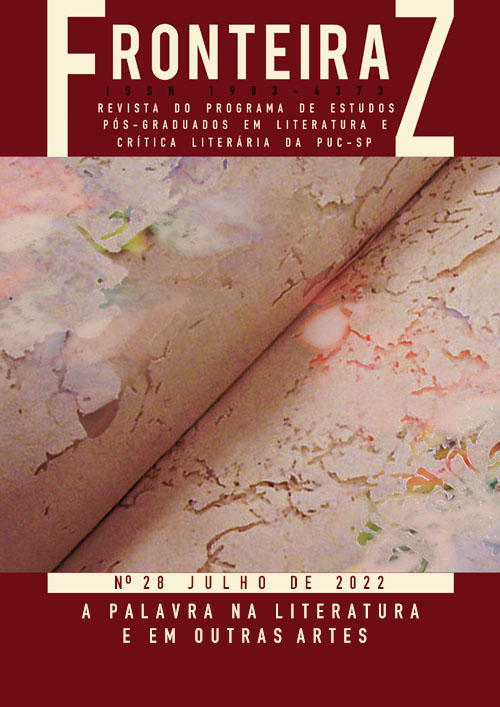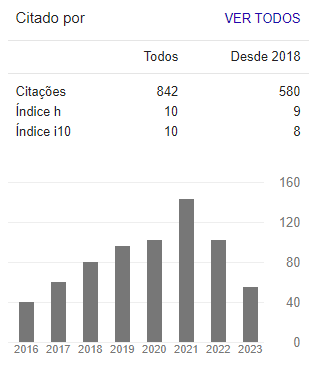The concreteness of words and the material forms of memory in Toni Morrison's Beloved
DOI:
https://doi.org/10.23925/1983-4373.2022i28p92-107Keywords:
Contemporary novel, Identity, Toni Morrison, Beloved, MemoryAbstract
This essay proposes an analysis of the novel Beloved (1987) by North American writer Toni Morrison, pursuing the hypothesis that the central perspective organizing the events of the plot involves a reflection on the role of words in their relationship with the modes of recording the experiences of slaves and their descendants. Far from dwelling in a space of open flux or discursive freedom, the characters’ struggles with words force them to face specific forms of power that threaten the existence of their memories. From this perspective, we will argue that the novel can be read as a critical discussion about forms of survival of pre-modern sociability modes in the heart of contemporary life. In order to do this, we will turn to the concept of the “impossibility to narrate” which marks a central part of the discussion on modernity in the works by critics such as Theodor Adorno and Walter Benjamin.
References
ADORNO, T. Notas de literatura I. Trad. Jorge de Almeida. São Paulo: Duas Cidades & Perspectiva, 2003.
AUERBACH, E. Mimesis. Trad. George Bernard Sperber. 2. ed. São Paulo: Perspectiva, 1987.
BENJAMIN, W. Obras escolhidas: magia e técnica, arte e política. 6. ed. São Paulo: Brasiliense, 1993.
EAGLETON, T. Teoria da literatura: uma introdução. Trad. Waltensir Dutra. São Paulo: Martins Fontes, 1983.
JAMESON, F. The Ideologies of theory. London & New York: Verso, 2008.
MORRISON, T. Amada. Trad. José Rubens Siqueira. São Paulo: Companhia das Letras, 2018.
Downloads
Published
How to Cite
Issue
Section
License
Copyright (c) 2022 FronteiraZ. Journal of the Postgraduate Studies in Literature and Literary Criticism Program

This work is licensed under a Creative Commons Attribution-NonCommercial 4.0 International License.







 Este obra está licenciada com uma Licença
Este obra está licenciada com uma Licença 